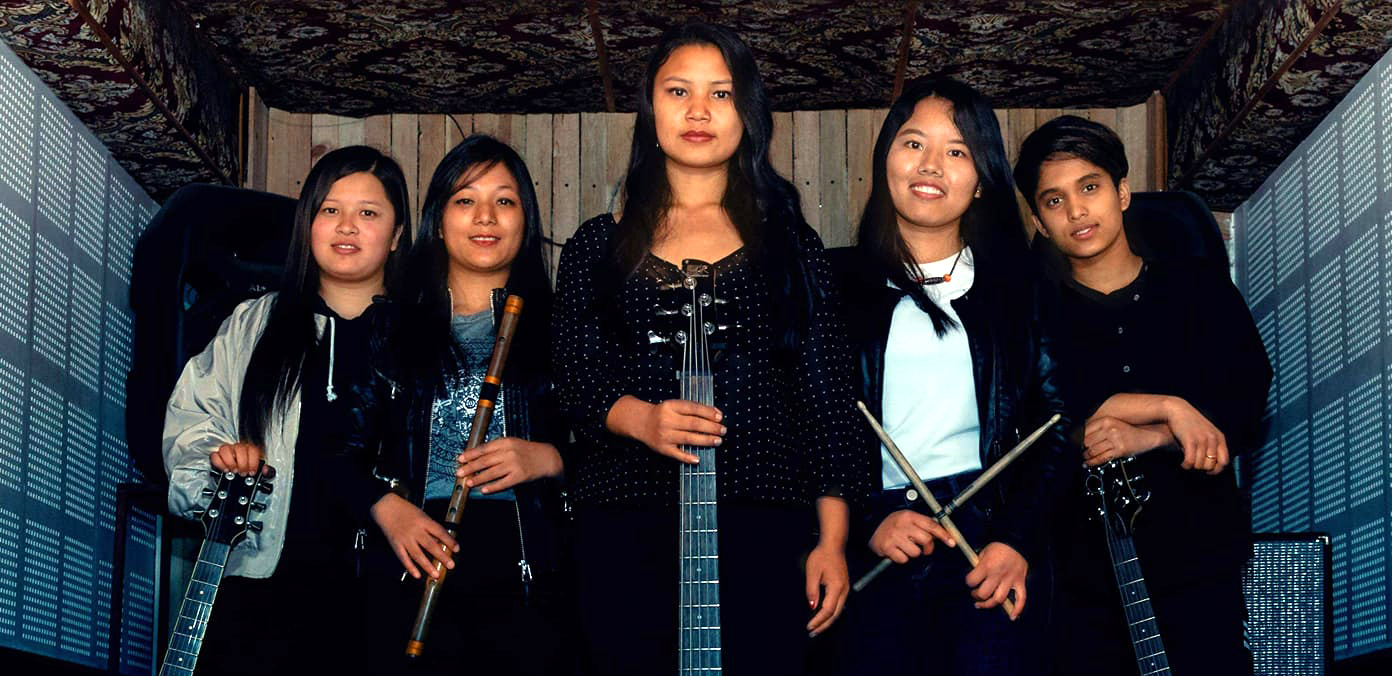One day during class, my teacher asked, “How many of you are 10 years old? Raise your hands”. I didn’t raise my hands but I was very curious to know why. It wasn’t only me; my friends were also equally curious. Soon after, our teacher ended our curiosity. She told us that Mahakavi Laxmi Prasad Devkota had written his first poem when he was 10 years old. While she was mentioning that, there were a lot of things going inside my mind. I was only 8 years old and I was asking myself if I too was able to write a poem or not. That evening, after reaching home, I jotted down few words in a piece of paper, and recited, like a poem, to my mother. After hearing, she told me that she really liked it. I was motivated to write more and then slowly, I started to write poems, stories, and essays. My work began to get published in many different children’s magazines. This inspired me to write more.
 Gradually, I was being known for my literature. When I was in school, I had already published my collection of poems and stories. I used to take part in different competitions. In the first competition, I had won the first prize and which motivated me a lot. I would normally win most of the competitions. Also, my teachers and even my mother would usually predict that I would win. Even my friends would assume that I will win the competition that I take part in. Most of the time it was inspiring but gradually I started to feel the pressure to win every competition. Later I realized that it is more important to improve your skill and build your capacity than to win the competitions.
Gradually, I was being known for my literature. When I was in school, I had already published my collection of poems and stories. I used to take part in different competitions. In the first competition, I had won the first prize and which motivated me a lot. I would normally win most of the competitions. Also, my teachers and even my mother would usually predict that I would win. Even my friends would assume that I will win the competition that I take part in. Most of the time it was inspiring but gradually I started to feel the pressure to win every competition. Later I realized that it is more important to improve your skill and build your capacity than to win the competitions.
I started to focus on how to improve my skills. I remember ever since I was little, I loved singing and humming songs. It must be because my mother sees me being happy whenever I sing. She had arranged a music class at home. As I started to learn more, I thought it would be nice to share what I had learned so far, thus, I began giving music lessons too.
Along with music, I never stopped studying and writing. Writing became a very important part of my life. Many times when I had no space to express my feelings, it was the only medium where I could vent. Maybe this is why I established an indispensable and spiritual relationship with writing.
I never had any aim in my life, I never functioned that way. That is why, apart from literature and music, I engaged myself in various different fields. My interests and my experiences are in different areas and I never thought that I need to be a master in one particular discipline.
I recall my childhood days when I think about the colorful moments of my life.
I was my mother’s first child and she was really happy. I could hear her talk but my mother was stunned when she found out that I wasn’t able to see her. I was taken to the hospital, and I was diagnosed with visual impairment. My mother was in extreme shock and it took a while for her to accept my reality.
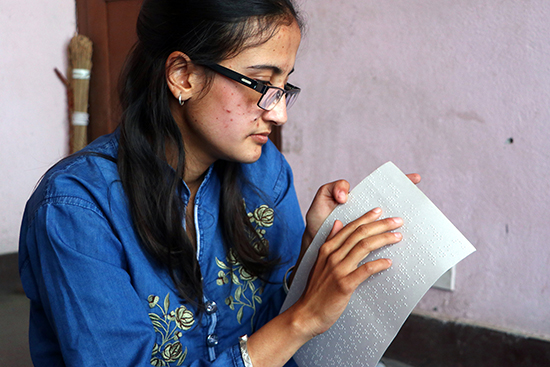 My mother visited Tilganga hospital many times for my eye treatment. During that course, she saw a huge crowd of people who had vision impairment, and that helped her realize the scene and gradually accept the truth. The only thing that my eyes are capable of differentiating is the brightness and the darkness of day and night. After accepting my truth, my mother started to focus on how to make me more competent and more capable. She also learned how to use Braille. Throughout my learning process, she never allowed my vision impairment to be my weakness. However, because there weren’t any disability-friendly schools for people like me, we were compelled to study in a regular school.
My mother visited Tilganga hospital many times for my eye treatment. During that course, she saw a huge crowd of people who had vision impairment, and that helped her realize the scene and gradually accept the truth. The only thing that my eyes are capable of differentiating is the brightness and the darkness of day and night. After accepting my truth, my mother started to focus on how to make me more competent and more capable. She also learned how to use Braille. Throughout my learning process, she never allowed my vision impairment to be my weakness. However, because there weren’t any disability-friendly schools for people like me, we were compelled to study in a regular school.
My mother is my ultimate inspiration. It is because of her that at 22 years of age, I feel very independent. It is not only me; my family also feels the same. Earlier, my grandmother used to worry about my marriage. She would think that no one will want to marry me but now she feels that anyone will be ready to marry me.
Even though we were competent, the education system and the fact that the curriculum was not constructed keeping people like me in consideration, we felt that the exam result didn’t justify our capacity.
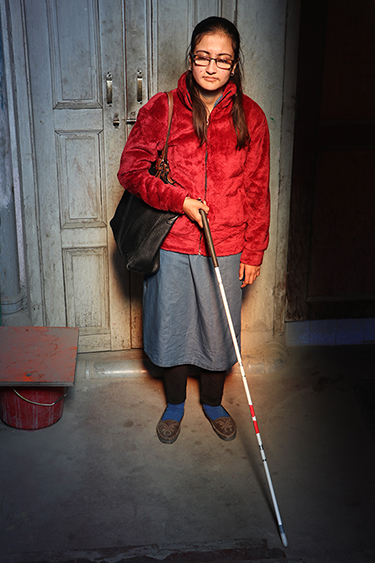 Though I am visually impaired, I am forced to face more challenges because I am a woman. Our society has basic rudimentary norms and principles which makes it very difficult for me to function on a daily basis. I am not only a woman but a woman with disability. If I reach home a little late or hang out with my friends, my neighbor would sneak peek and make assumptions about me or question my family. I and my mother have faced these questions several times. This is not just because I am visually impaired but more so because I am a woman who is also visually impaired.
Though I am visually impaired, I am forced to face more challenges because I am a woman. Our society has basic rudimentary norms and principles which makes it very difficult for me to function on a daily basis. I am not only a woman but a woman with disability. If I reach home a little late or hang out with my friends, my neighbor would sneak peek and make assumptions about me or question my family. I and my mother have faced these questions several times. This is not just because I am visually impaired but more so because I am a woman who is also visually impaired.
Once you are identified as a person with disability, the way people look at you is very different.
I have observed that in our society if you are born disability, you are left for the government to look after, assuming that you are their responsibility. Even in the families, the disability are cramped within the four walls in the name of security. I do feel bad regarding their stereotypical social attitude towards me but more than that I feel really sad for them and their perspectives. I cannot forget all those moments when I cried alone. My mother was always with me during those days to encourage me. My family members and my teachers always supported me on all my decisions.
This is not just because I am visually impaired but more so because I am a woman who is also visually impaired.
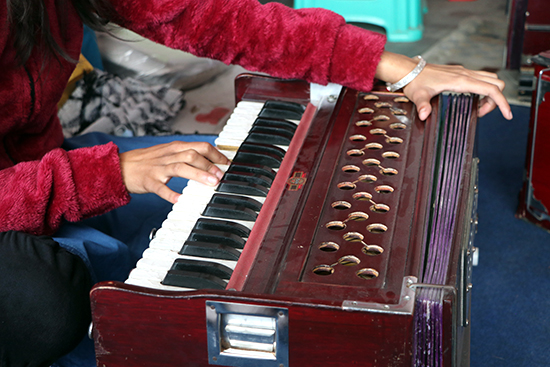 While analyzing my previous days, I think it’s my interests and the choices I made that got me where I am today. I was a good student, and because of that my mother always wanted me to work in an office. Even today, she keeps insisting me to find a job. However, I always explain to her that maybe the job will keep her happy but it will not make me happy. I’ve always loved exploring various fields and learning from them.
While analyzing my previous days, I think it’s my interests and the choices I made that got me where I am today. I was a good student, and because of that my mother always wanted me to work in an office. Even today, she keeps insisting me to find a job. However, I always explain to her that maybe the job will keep her happy but it will not make me happy. I’ve always loved exploring various fields and learning from them.
While doing what you love, I realized that it is necessary to raise your voice about the issues concerning persons with disability. Hence, I have facilitated many different programs that were organized for disabled children with regard to their psychosocial wellbeing. It takes a lot of effort to convince the parents of children to bring them to the camp. Despite the challenges I faced, I want to continue doing what I am doing that concerns children with disability. As of now, I am giving them online classes. Today, they are able to recognize the letters and alphabets. Some of them are able to write poems and stories as well. I am really happy to witness them getting better at it. When I hear their stories, it reminds me of my childhood days. It’s not my age but my experiences that have made me mature.
I have no complaints about not being able to live my teen life. My life experiences are my learning and this learning will guide me to live the rest of my life.
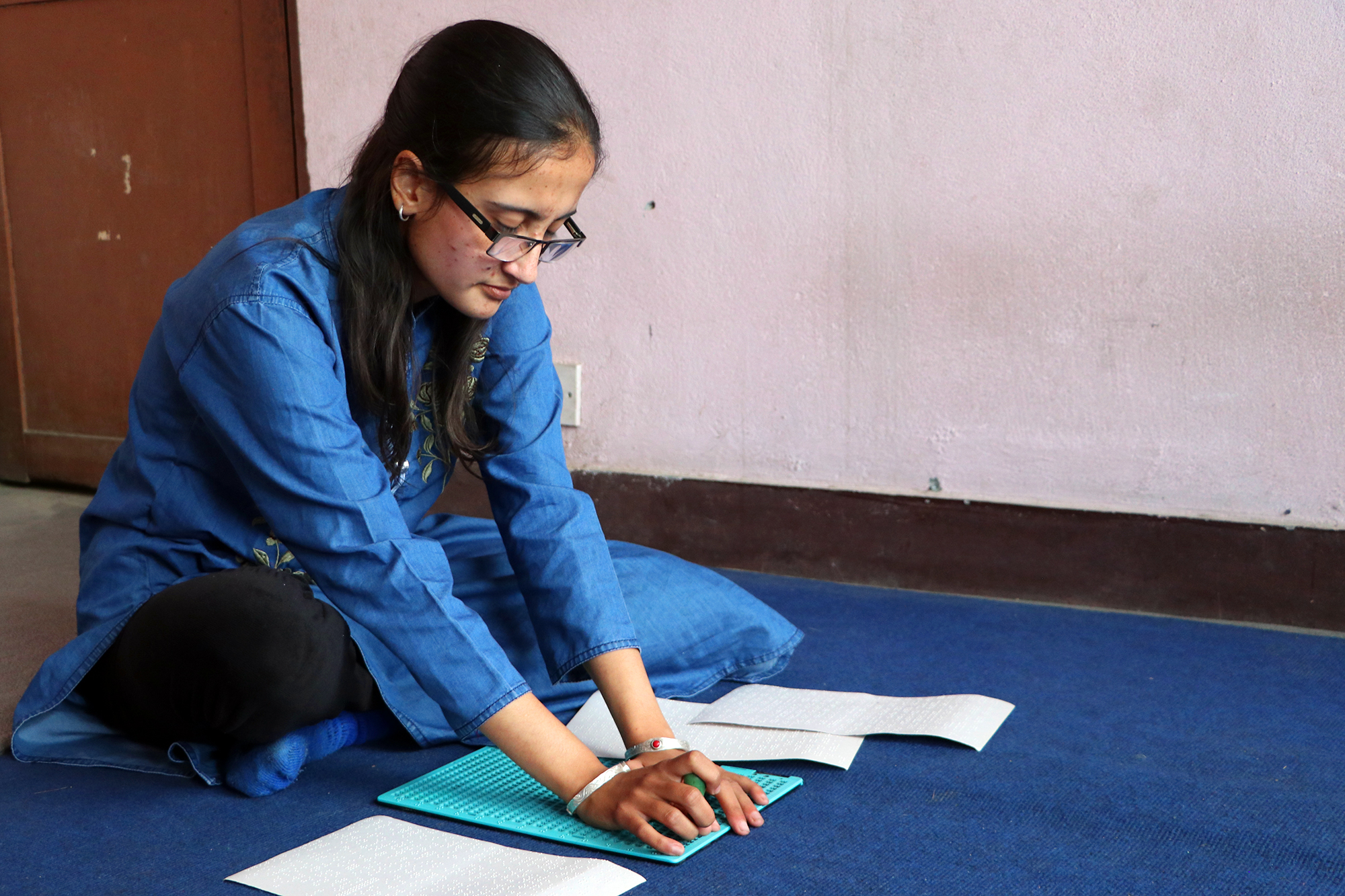


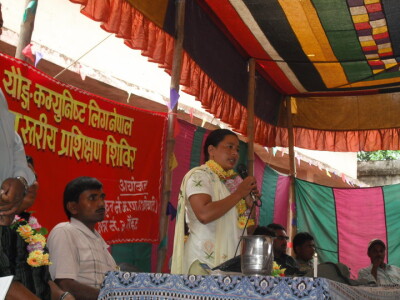 It didn’t matter how I got married; the only good news was that I was able to continue my education after my marriage. I was hopeful. I continued my education and got involved in student union during my college days. Slowly, I started to take responsibilities and work with the women association as well. I had clearly understood that if it’s ever possible to end the gender and caste discrimination, it is only possible through political protests. For generations my community have been facing this discrimination, and I wanted to find a way to release them from this injustice and pain, anyhow. I became completely active indulging myself fully in the political field as my stand against the disparity done by the then prevalent tyrannical monarchy. As a part of this, I started to work outside of the valley. Amongst everything, I always remember this one time at Makwanpur where we had organized a Combined Feast and Raato (red) Tika Campaign for Single Women. The combined feast program created an awareness and realization amidst the members of the Dalit community that every member should actively participate in politics to ensure their own freedom and secure their basic rights. Non – Dalit communities also became mindful of the fact that the Dalit communities were slowly making a progressive role in political system. With the Raato Tika Campaign for Single Women, I felt that I was doing something for my community. It felt good. Times when I got confused and lost, reading books on Marx and Marxism helped me regain myself and remind me my cause for the fight. As I was moving on, I knew I was changing; I was becoming more active.
It didn’t matter how I got married; the only good news was that I was able to continue my education after my marriage. I was hopeful. I continued my education and got involved in student union during my college days. Slowly, I started to take responsibilities and work with the women association as well. I had clearly understood that if it’s ever possible to end the gender and caste discrimination, it is only possible through political protests. For generations my community have been facing this discrimination, and I wanted to find a way to release them from this injustice and pain, anyhow. I became completely active indulging myself fully in the political field as my stand against the disparity done by the then prevalent tyrannical monarchy. As a part of this, I started to work outside of the valley. Amongst everything, I always remember this one time at Makwanpur where we had organized a Combined Feast and Raato (red) Tika Campaign for Single Women. The combined feast program created an awareness and realization amidst the members of the Dalit community that every member should actively participate in politics to ensure their own freedom and secure their basic rights. Non – Dalit communities also became mindful of the fact that the Dalit communities were slowly making a progressive role in political system. With the Raato Tika Campaign for Single Women, I felt that I was doing something for my community. It felt good. Times when I got confused and lost, reading books on Marx and Marxism helped me regain myself and remind me my cause for the fight. As I was moving on, I knew I was changing; I was becoming more active.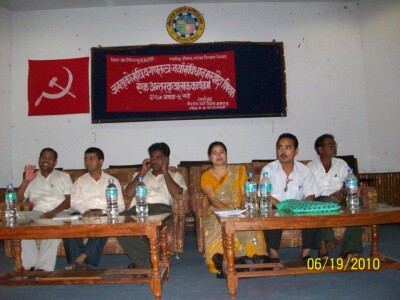 My daughter was born. Besides being a daughter, a student, a daughter-in-law, a wife, a female leader; I was now a mother too. While playing all these roles, I don’t think so I have done a full justification to any of these roles where I feel completely satisfied. I had a huge fear. I doubted whether or not I will be a good mother and my fear proved to be true. My daughter never got the devoted, gentle motherly love. I was so engrossed in politics, I sometimes even forgot that I had a child and I was her mother. I never realized it then but years later, this gap was visible on my daughter’s face. Unfortunately, it was already too late. It took me years to make her understand why I took those steps and why I was away from her. When I got married, I had no clue what love is and how it feels. When I finally understood its meaning, my lover wasn’t with me. My friends told me that my husband was having an extra marital affair. I didn’t believe them. In fact, I wasn’t ready to accept the truth. How long could I possibly run away from the truth anyway? I was broken and it took a long time to heal. I read a lot about Marxism. I had a resolution that I will never let may personal family affairs interfere with my political agenda and I proceeded accordingly. I believe this is one of the reasons why I feel successful about where I am right now, as a political leader. Additionally, I feel happy to have found a partner who supports me on journey to fight injustice. I feel content with how my life is flowing at the moment.
My daughter was born. Besides being a daughter, a student, a daughter-in-law, a wife, a female leader; I was now a mother too. While playing all these roles, I don’t think so I have done a full justification to any of these roles where I feel completely satisfied. I had a huge fear. I doubted whether or not I will be a good mother and my fear proved to be true. My daughter never got the devoted, gentle motherly love. I was so engrossed in politics, I sometimes even forgot that I had a child and I was her mother. I never realized it then but years later, this gap was visible on my daughter’s face. Unfortunately, it was already too late. It took me years to make her understand why I took those steps and why I was away from her. When I got married, I had no clue what love is and how it feels. When I finally understood its meaning, my lover wasn’t with me. My friends told me that my husband was having an extra marital affair. I didn’t believe them. In fact, I wasn’t ready to accept the truth. How long could I possibly run away from the truth anyway? I was broken and it took a long time to heal. I read a lot about Marxism. I had a resolution that I will never let may personal family affairs interfere with my political agenda and I proceeded accordingly. I believe this is one of the reasons why I feel successful about where I am right now, as a political leader. Additionally, I feel happy to have found a partner who supports me on journey to fight injustice. I feel content with how my life is flowing at the moment.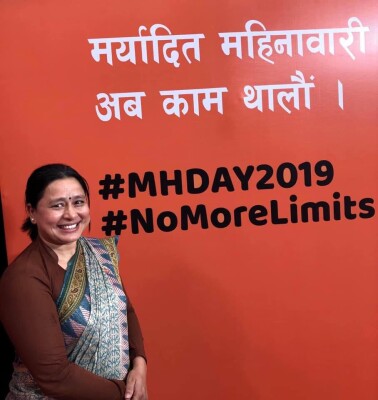 From being a member of Constitution Assembly to being a member of House of Representatives, even though I find my political journey fairly successful; I think many issues that I raised still have not been addressed. Needless to say, the fight against the system of our government is very evident. But what hurts me the most and makes me sad is the fact that I also have to raise my voice and fight against Brahmanism and patriarchy within the political party to which I dedicated my entire life. How much longer do we have to fight?
From being a member of Constitution Assembly to being a member of House of Representatives, even though I find my political journey fairly successful; I think many issues that I raised still have not been addressed. Needless to say, the fight against the system of our government is very evident. But what hurts me the most and makes me sad is the fact that I also have to raise my voice and fight against Brahmanism and patriarchy within the political party to which I dedicated my entire life. How much longer do we have to fight? 
 Gradually, I was being known for my literature. When I was in school, I had already published my collection of poems and stories. I used to take part in different competitions. In the first competition, I had won the first prize and which motivated me a lot. I would normally win most of the competitions. Also, my teachers and even my mother would usually predict that I would win. Even my friends would assume that I will win the competition that I take part in. Most of the time it was inspiring but gradually I started to feel the pressure to win every competition. Later I realized that it is more important to improve your skill and build your capacity than to win the competitions.
Gradually, I was being known for my literature. When I was in school, I had already published my collection of poems and stories. I used to take part in different competitions. In the first competition, I had won the first prize and which motivated me a lot. I would normally win most of the competitions. Also, my teachers and even my mother would usually predict that I would win. Even my friends would assume that I will win the competition that I take part in. Most of the time it was inspiring but gradually I started to feel the pressure to win every competition. Later I realized that it is more important to improve your skill and build your capacity than to win the competitions. My mother visited Tilganga hospital many times for my eye treatment. During that course, she saw a huge crowd of people who had vision impairment, and that helped her realize the scene and gradually accept the truth. The only thing that my eyes are capable of differentiating is the brightness and the darkness of day and night. After accepting my truth, my mother started to focus on how to make me more competent and more capable. She also learned how to use Braille. Throughout my learning process, she never allowed my vision impairment to be my weakness. However, because there weren’t any disability-friendly schools for people like me, we were compelled to study in a regular school.
My mother visited Tilganga hospital many times for my eye treatment. During that course, she saw a huge crowd of people who had vision impairment, and that helped her realize the scene and gradually accept the truth. The only thing that my eyes are capable of differentiating is the brightness and the darkness of day and night. After accepting my truth, my mother started to focus on how to make me more competent and more capable. She also learned how to use Braille. Throughout my learning process, she never allowed my vision impairment to be my weakness. However, because there weren’t any disability-friendly schools for people like me, we were compelled to study in a regular school. Though I am visually impaired, I am forced to face more challenges because I am a woman. Our society has basic rudimentary norms and principles which makes it very difficult for me to function on a daily basis. I am not only a woman but a woman with disability. If I reach home a little late or hang out with my friends, my neighbor would sneak peek and make assumptions about me or question my family. I and my mother have faced these questions several times. This is not just because I am visually impaired but more so because I am a woman who is also visually impaired.
Though I am visually impaired, I am forced to face more challenges because I am a woman. Our society has basic rudimentary norms and principles which makes it very difficult for me to function on a daily basis. I am not only a woman but a woman with disability. If I reach home a little late or hang out with my friends, my neighbor would sneak peek and make assumptions about me or question my family. I and my mother have faced these questions several times. This is not just because I am visually impaired but more so because I am a woman who is also visually impaired. While analyzing my previous days, I think it’s my interests and the choices I made that got me where I am today. I was a good student, and because of that my mother always wanted me to work in an office. Even today, she keeps insisting me to find a job. However, I always explain to her that maybe the job will keep her happy but it will not make me happy. I’ve always loved exploring various fields and learning from them.
While analyzing my previous days, I think it’s my interests and the choices I made that got me where I am today. I was a good student, and because of that my mother always wanted me to work in an office. Even today, she keeps insisting me to find a job. However, I always explain to her that maybe the job will keep her happy but it will not make me happy. I’ve always loved exploring various fields and learning from them.

 Girls playing musical instruments were rare. In fact, it would be considered bad-omen if women, in particular, do so. Even though there were barely any girls playing musical instruments, I didn’t let that stop me. When all the young teenage boys were forming music bands, I formed a band with the girls I played basketball with. I had no idea about music. But I knew that I wanted to become play the drum, become a drummer. After my 10th grade exams, I started taking drumming lessons. Financially it was very difficult for my mother; she still managed to save some money for my drum classes. Even though I didn’t own a drum at home, I was so passionate about it that I would put pillows in front of me as though they were drums and practice.
Girls playing musical instruments were rare. In fact, it would be considered bad-omen if women, in particular, do so. Even though there were barely any girls playing musical instruments, I didn’t let that stop me. When all the young teenage boys were forming music bands, I formed a band with the girls I played basketball with. I had no idea about music. But I knew that I wanted to become play the drum, become a drummer. After my 10th grade exams, I started taking drumming lessons. Financially it was very difficult for my mother; she still managed to save some money for my drum classes. Even though I didn’t own a drum at home, I was so passionate about it that I would put pillows in front of me as though they were drums and practice. My aim was not to become a drummer. It is a will power that arose while growing up and experiencing gender discrimination. It was my rage against a society that thinks that man can only play music. It was an unintended zeal to do better than boys as I was treated differently for just being a girl. I still ponder about why did my brother had the privilege to go to a decent school and not me? There are deep-rooted inequalities in society and someone has to fight against them and I consider myself to be one. I know it’s not enough but even if it could change like 1 percentage then I’d consider myself successful. The change has to be done here, so since my childhood I never thought of leaving the country. I always wanted to do something in my own country, in my own community.
My aim was not to become a drummer. It is a will power that arose while growing up and experiencing gender discrimination. It was my rage against a society that thinks that man can only play music. It was an unintended zeal to do better than boys as I was treated differently for just being a girl. I still ponder about why did my brother had the privilege to go to a decent school and not me? There are deep-rooted inequalities in society and someone has to fight against them and I consider myself to be one. I know it’s not enough but even if it could change like 1 percentage then I’d consider myself successful. The change has to be done here, so since my childhood I never thought of leaving the country. I always wanted to do something in my own country, in my own community.